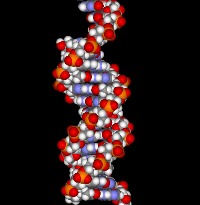Texas man convicted mistakenly of gang rape
A Texas man who spent 10 years in prison for a gang rape he said he did not commit should be justified due to the DNA evidence.

The recommendation by Judge Robert Francis will be forwarded to an appeals court for formal approval that would make James Curtis Giles the 13th man to be exonerated with the help of DNA evidence in Dallas County. Giles, now 53, has been living as a registered sex offender since his release from prison more than a decade ago.
Texas leads the nation with 27 DNA exonerations, one more than Illinois, according to Innocence Project, a New-York based legal center that specializes in overturning wrongful convictions. There have been 198 exonerations nationwide.
The Dallas County District Attorney's office and Giles' lawyer both presented evidence Monday that they say proves he is innocent of the 1982 gang rape of a Dallas woman.
A man who pleaded guilty to the gang rape, Stanley Bryant, implicated two other men in the crime: a James Giles and a Michael Brown. DNA evidence linked Brown and Bryant to the crime, Smith said. Brown was never tried and died in prison after being convicted of another gang rape.
Police eventually arrested James Curtis Giles, who lived 25 miles (40 kilometers) away and did not match the description of the attacker given by the rape victim, said Vanessa Potkin, Giles' lawyer and a staff attorney with the Innocence Project. Giles was about 10 years older and had gold teeth. He also had an alibi; he and his wife told police he was asleep in bed.
Investigators ignored another man with a similar name: James Earl Giles. That Giles lived across the street from the victim and had previously been arrested with Brown on other charges, the attorneys said. He died in prison in 2000 while serving time for robbery and assault.
The victims recently acknowledged some doubt as to whether James Curtis Giles was among the rapists. A witness recently identified the other man, James Earl Giles, in a photo lineup, Smith said.
The DNA evidence that linked Brown to the crime was one factor that helped convince the district attorney's office to investigate James Curtis Giles' claim of innocence, especially because of Brown's "overwhelming connection" to the other James Giles, Potkin said.
Giles is married and works for an accounting business, Potkin said.
The judge's ruling that grants Giles' writ of habeus corpus, if approved by a criminal appeals court, will vacate the conviction.
He is scheduled to appear Tuesday at the state Capitol in Austin with Barry Scheck, the co-director of the Innocence Project. They are scheduled to speak at Senate hearings regarding three reform bills designed to reduce wrongful convictions in Texas, said Eric Ferrero, a spokesman for the Innocence Project.
The exoneration of Giles, would be the third since District Attorney Craig Watkins took office on Jan. 1 pledging to free anyone wrongfully convicted.
Watkins, the state's first black district attorney, took over an office with a history of racial discrimination, including a staff manual for prosecutors that described how to keep minorities off juries.
Subscribe to Pravda.Ru Telegram channel, Facebook, RSS!


